From Korean farmers to Rohingya refugees: the precious gift of rice
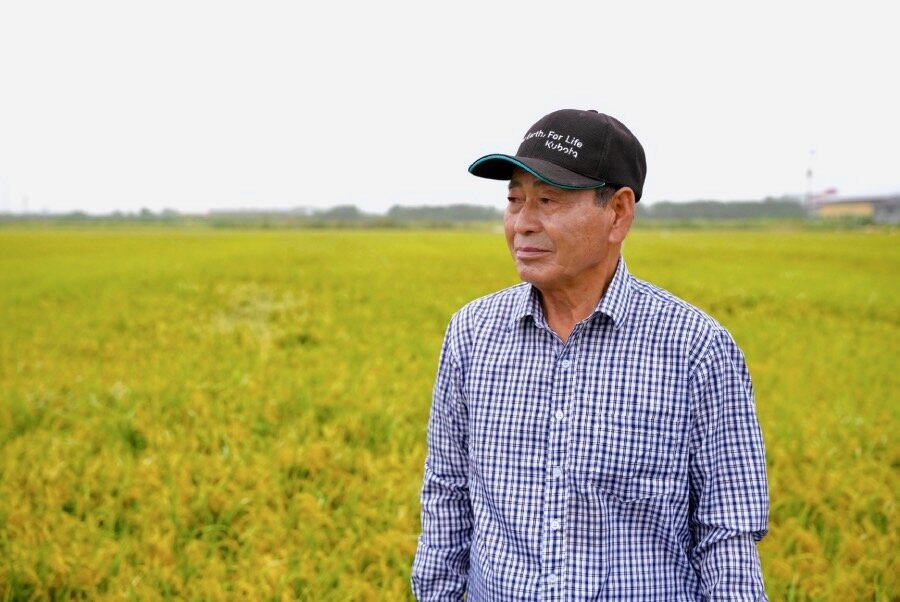
Throughout his 85 years, rice has dominated Suwoong Han’s life.
During bitter March days, when the soil is still hard, the elderly Korean farmer soaks rice seeds so they germinate. Then comes planting and pest control - and the chance to see his paddy morph into a sea of yellow and green. And, finally, harvest time, in October, when Han delivers his crop to a rice processing centre, and can finally bank the profits from his hard work.
“That is when I feel happiest,” says Han, who is also the son of rice farmers from the Republic of Korea’s northwestern Gyeonggi Province.
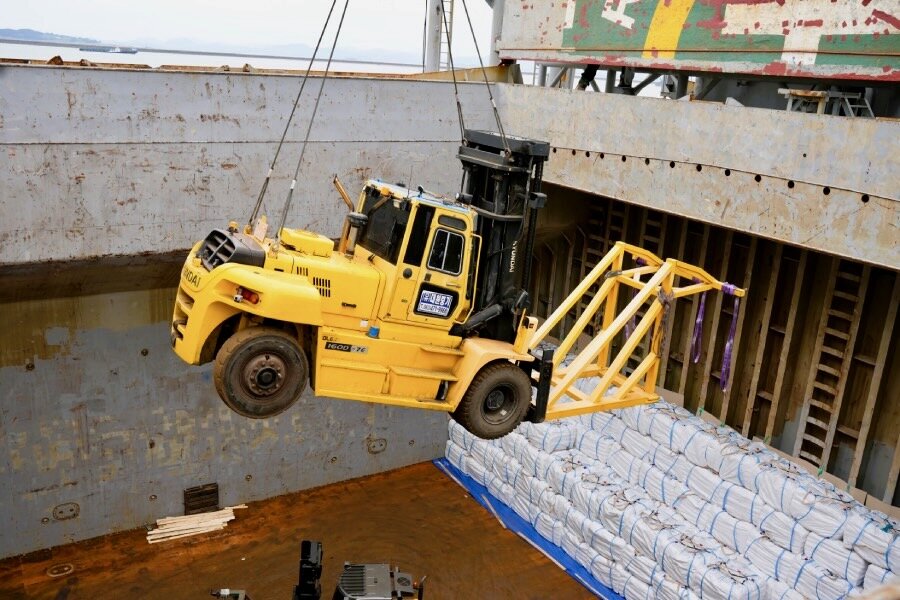
Han takes pride in his harvest for other reasons. On any given year, it may count among the tens of thousands of metric tonnes of rice his country donates to support World Food Programme (WFP) programmes for hungry people.
“Hunger is one of the most difficult hardships to endure,” Han says, recalling difficult days after the 1950-53 Korean War. As a young man, WFP food aid to his country was a lifeline.
“I remember walking long distances to receive food assistance, including wheat flour, sorghum flour, milk, or powdered milk,” he says. “So, I truly understand what it means to be hungry.”
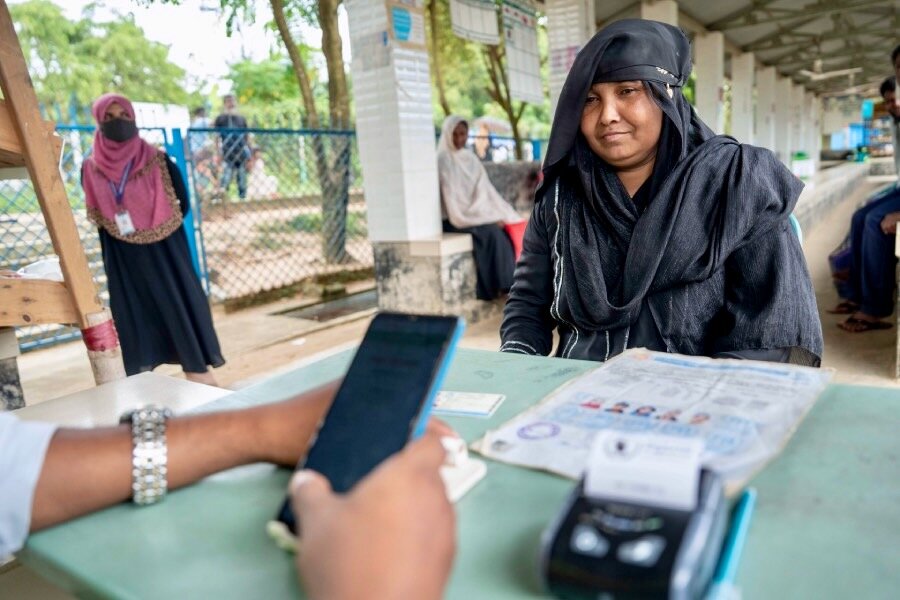
Nearly 4,000 kilometres away, Rohingya refugee Leila understands it too. The mother of five escaped Myanmar’s Rakhine State in 2017, after her husband was shot and killed in an uptick of violence. After a 15-day walk, she found safety in the sprawling refugee camps of Cox’s Bazar, just across the border in Bangladesh.
“Last year, we received Korean rice. It was very tasty,” Leila remembers. “It was good with lentils and cabbage.”
From aid recipient to top donor
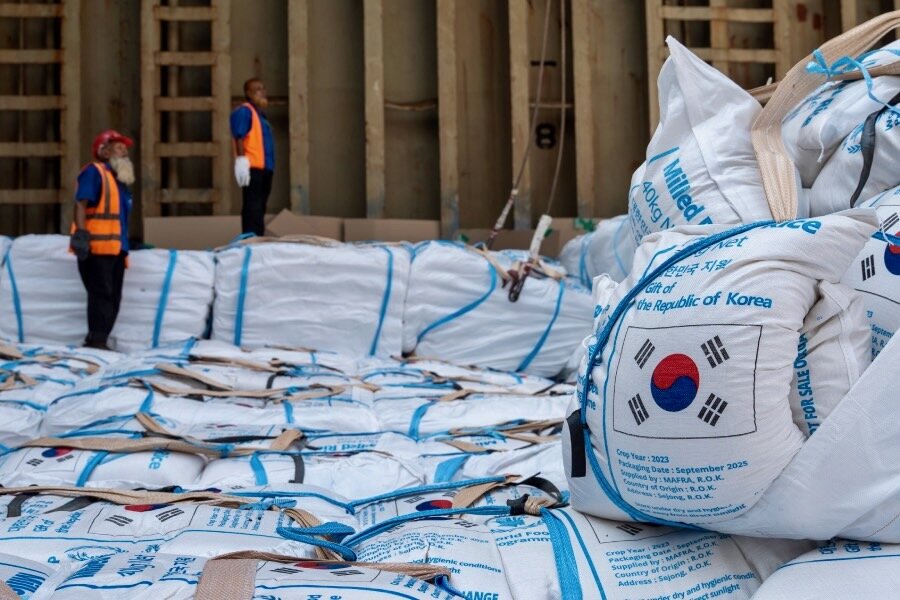
Just over a generation ago, the Republic of Korea was one of the world’s poorest countries, and a leading recipient of WFP assistance. Between 1964 and1984, WFP rolled out nearly two dozen projects in the country - from nutrition assistance and water sanitation to flood control and road construction - helping to turn that trajectory around.
Today, the booming East Asian nation counts among WFP’s top donors, earmarking hundreds of millions of dollars for our food assistance every year - including rice grown by famers like Han. This year, Seoul provided a record 150,000 tons of the grain for WFP operations in 17 countries — triple the tonnage it provided in 2018, when it first started donating rice.
“Having transformed from an aid recipient to a donor country, the Republic of Korea is deeply committed to giving back and taking a leading role in global humanitarian efforts,” says Shinjae Kim, Director of Global Agricultural Development Team at the Republic of Korea’s Ministry of Agriculture, Food and Rural Affairs.
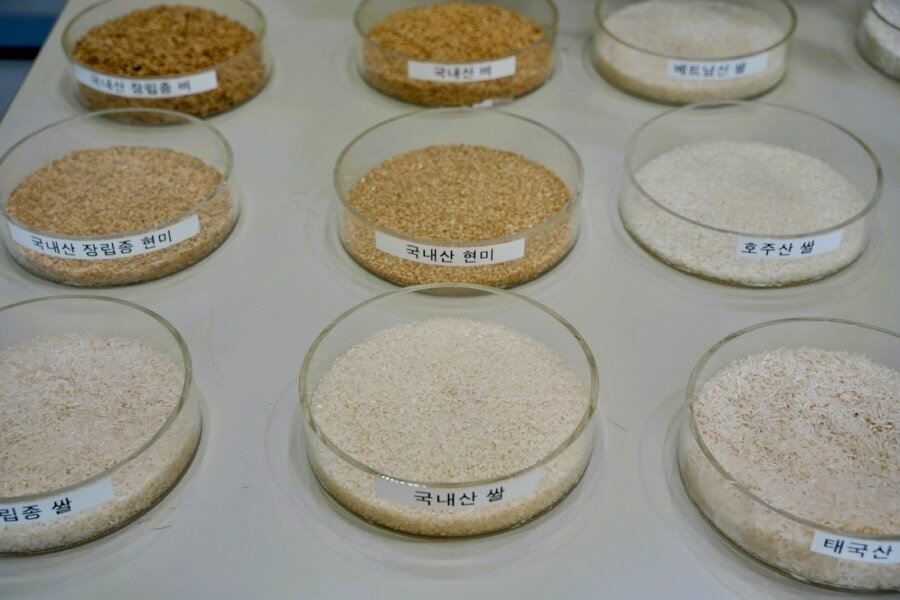
This year, Bangladesh has become the first recipient of the Government’s nutrient-packed fortified rice - which aims to go “beyond food assistance, to encompass nutrition support and help narrow the global nutrition gap,” Kim adds.
The rice heads to places like Bangladesh, where the Government of Korea’s contributions help to support more than one million Rohingya refugees like Leila.
“Korean rice is a lifeline for some of the world's hungriest people,“ says Angie Lee, Director of the WFP Seoul Global Office, noting the rice is expected to reach more than 8 million vulnerable people in 2025. “We are grateful for this vital and predictable contribution, which delivers not just food, but hope.”
Quality and safety
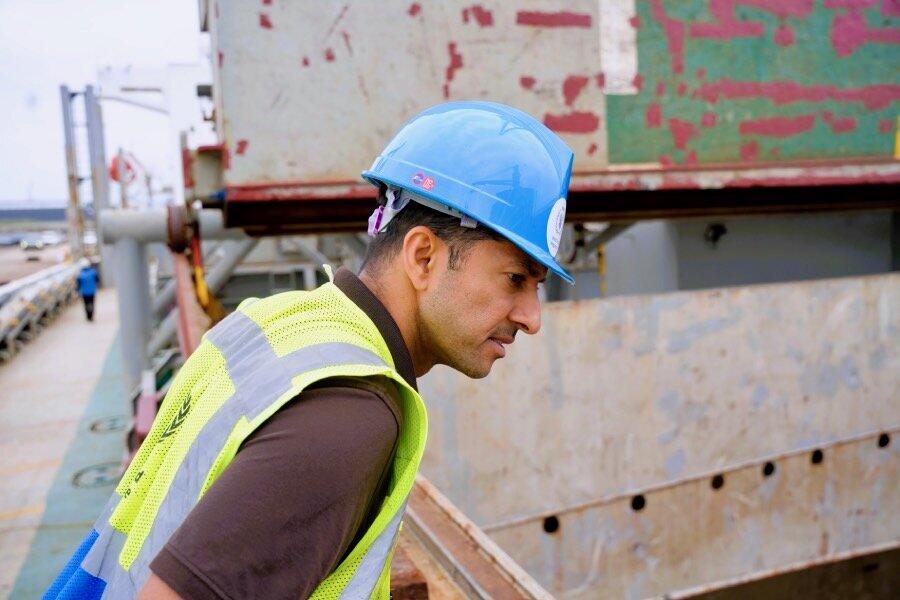
Farmers like Han cultivate rice under government contracts. Their harvests end up in large warehouses located in the nation’s major production areas. The grains are husked and stored in cold units to ensure they have a long shelf life, and meet strict food quality standards.
Rice heading to Cox’s Bazar is then trucked to Gunsan Port, in the western part of the country, where it is shipped to Bangladesh on WFP-chartered vessels. Seoul’s donation covers the WFP costs of both transporting and processing the rice - which undergoes multiple quality checks by the Government’s quality control agency and WFP.
“The biggest challenge is ensuring everyone remains focused on cargo safety,” says WFP Shipping Officer Jaspal Oberoi. What’s key, he adds, “is knowing the rice we handle, despite all the complexities, ultimately reaches people in need.”
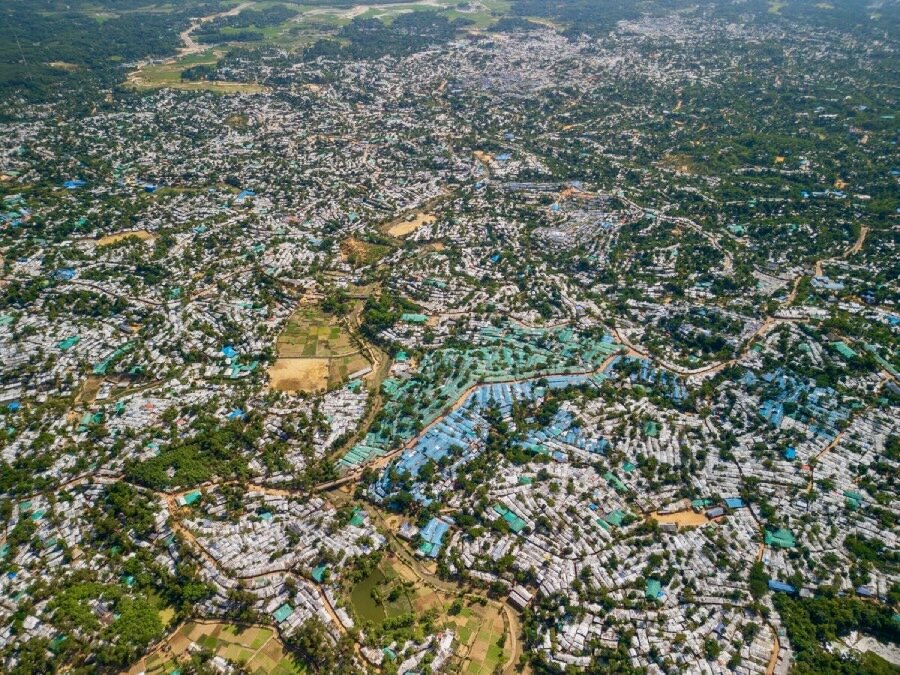
After roughly two weeks at sea, the rice arrives in Bangladesh’s main Chittagong Port, where it undergoes additional quality checks. It is then trucked to warehouses in Cox’s Bazar for distribution to the million-plus Rohingya refugees there - who depend almost entirely on humanitarian aid to survive.
“The Rohingya face multiple, overlapping challenges,” says WFP Bangladesh Programme Officer Mohammad Rokibul Alam, ticking off overcrowded living conditions in Cox’s Bazar, health risks and limited earning and educational opportunities.
Precious grains
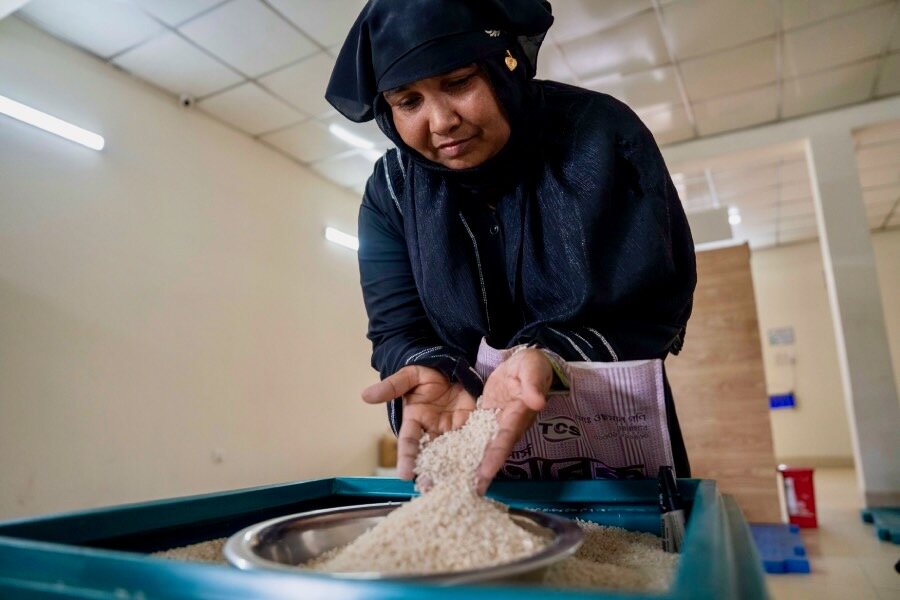
In a place where food is precious, Alam has a message for those who helped to grow it. “Every grain of rice reflects your hard work and kindness,” he says of Korean farmers like Han, “and it is received with deep appreciation by the families in the camps.”
Those families include Leila’s, who lives in in Cox’s Bazar in a small shelter made of bamboo sticks. Meals are based on the staple rice and other items - including fresh vegetables -she buys with a US$12 monthly WFP voucher. In an uncertain global funding environment, that lifeline might be affected after March 2026.
“The food doesn’t last,” Leila says. “My children are growing, especially my eldest son, who needs more food than the rest of us.”
Declining resources collide with escalating needs at the camps. Since early 2024, more than 130,000 Rohingya refugees have arrived in Cox’s Bazar, amid ongoing fighting in Rakhine State. As the crisis continues, prospects for them returning anytime soon are bleak.
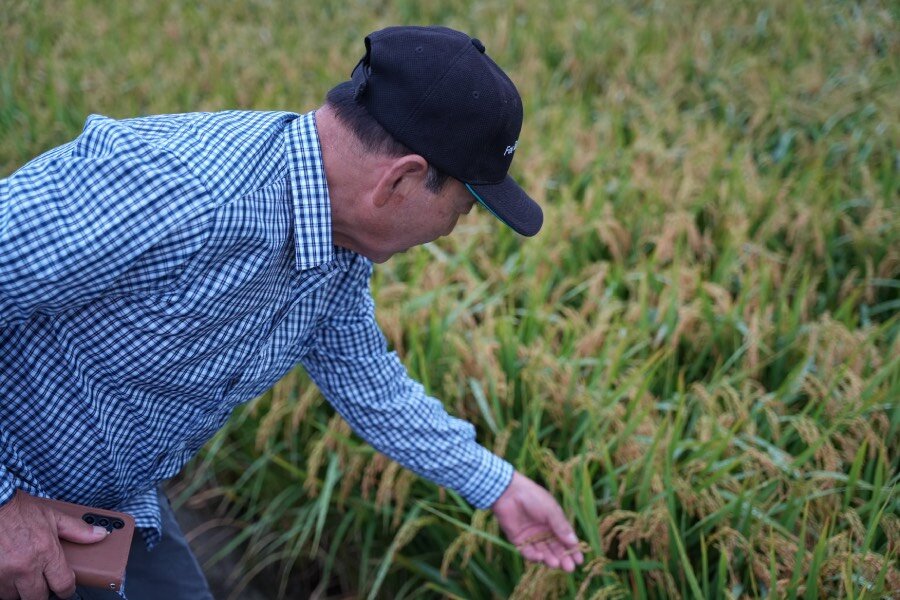
“The Rohingya community has been stateless for decades,” says WFP’s Alam. “Despite the rising needs in the camps, international support has been sharply declining. This makes contributions such as the Korean rice that much more critical.”
As she sifts grains of rice through her hands, Leila is grateful for this far-away donation. “I thank the Korean people for the rice,” she says. “I pray for them, and wish them well.”
From his home in Gyeonggi, farmer Han is glad to be making a difference. “Knowing the rice we produce helps people across the sea overcomes their difficulties truly warms my heart,” he says.
